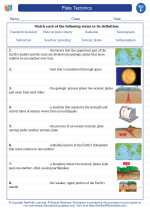Water Resources
Water resources refer to the sources of water that are potentially useful or can be utilized for human activities. These resources include natural water bodies such as lakes, rivers, groundwater, and oceans, as well as man-made sources such as reservoirs and storage tanks.
Types of Water Resources
Surface Water
Surface water is the water that is found on the Earth's surface in natural water bodies such as rivers, lakes, and streams. It is an important source of water for drinking, irrigation, and industrial use.
Groundwater
Groundwater is the water that is found beneath the Earth's surface in aquifers. It is accessed through wells and is a vital source of water for drinking and irrigation in many parts of the world.
Oceans
Oceans are the largest water bodies on Earth and are a significant source of water. However, the water from oceans needs to undergo desalination to make it suitable for drinking and other uses.
Importance of Water Resources
Water resources are essential for various aspects of human life and the environment. They are crucial for drinking, agriculture, sanitation, industrial processes, and the sustenance of ecosystems.
Study Guide
- What are the main types of water resources?
- Why is groundwater important?
- Discuss the significance of water resources for agriculture.
- Explain the need for desalination of ocean water.
Understanding water resources is crucial for understanding the sustainability of human activities and the environment. It is important to consider the conservation and management of water resources to ensure their availability for future generations.
.◂Science Worksheets and Study Guides Sixth Grade. Plate Tectonics
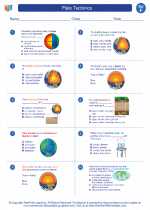
 Worksheet/Answer key
Worksheet/Answer key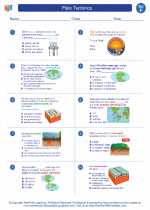
 Worksheet/Answer key
Worksheet/Answer key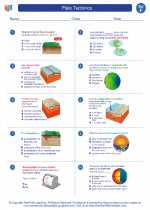
 Vocabulary/Answer key
Vocabulary/Answer key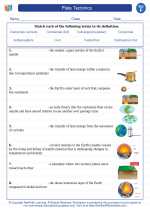
 Vocabulary/Answer key
Vocabulary/Answer key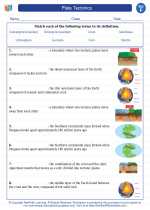
 Vocabulary/Answer key
Vocabulary/Answer key
 Vocabulary/Answer key
Vocabulary/Answer key